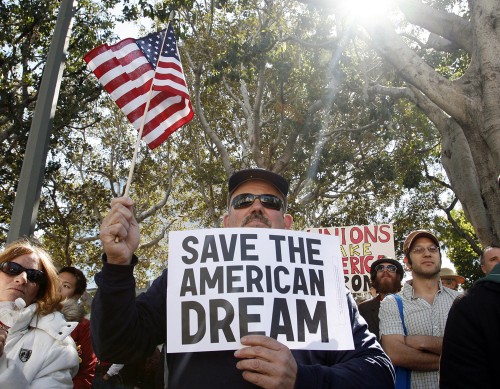
In the aftermath of last night's vote in Wisconsin, Washington Post columnist interviewed labor historian Nelson Lichtenstein about whether this is a long term win or loss for unions.
Here is an interesting excerpt from the interview concerning Virginia and unions:
EK: The tangible outcome of this is that most public-employee unions in Wisconsin won’t be able to collectively bargain. But public-employee unions can’t collectively bargain in Virginia. They can’t collectively bargain at the federal level. And yet Virginia is a nice enough place to live, and the country still stands. Why should I think this is so important?
NL: I spent 10 years in Virginia, at U-Va. And I actually learned a lot about unions while I was there. There’s too much emphasis put on the question of whether workers can bargain for wages and strike. The more important question is whether you have an organization made up of workers who meet by themselves and elect their own leaders. That’s the key to political influence. And it’s why, when it comes to the specific laws, I’m a wuss: Any kind of collective bargaining law is better than none, because it provides structures for workers to get together. That didn’t exist in Virginia, because those structures didn’t exist in Virginia.
The bottom line for organizing labor or communities is that you need strong organizations with strong leaders who come from the ranks or from the community and are willing to speak up and organize!


